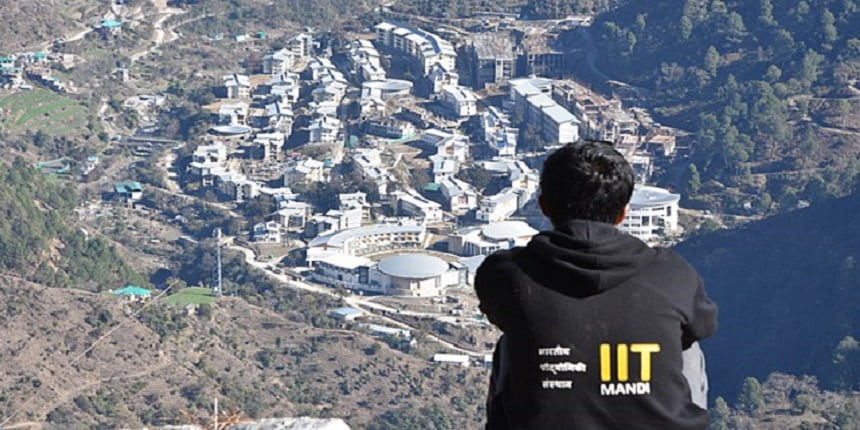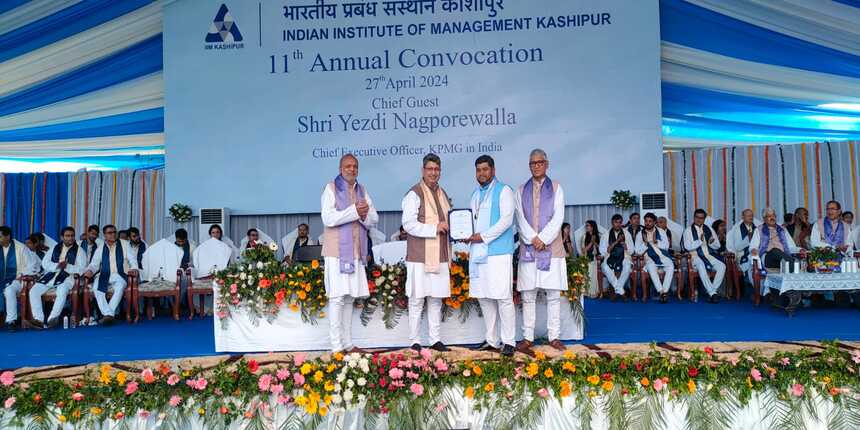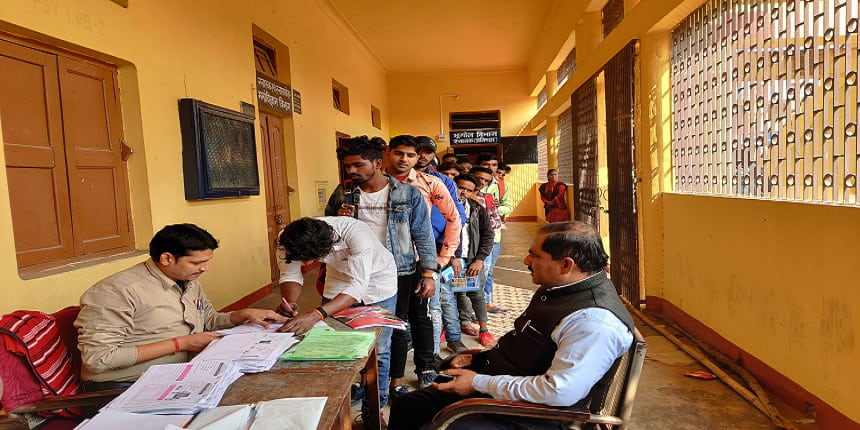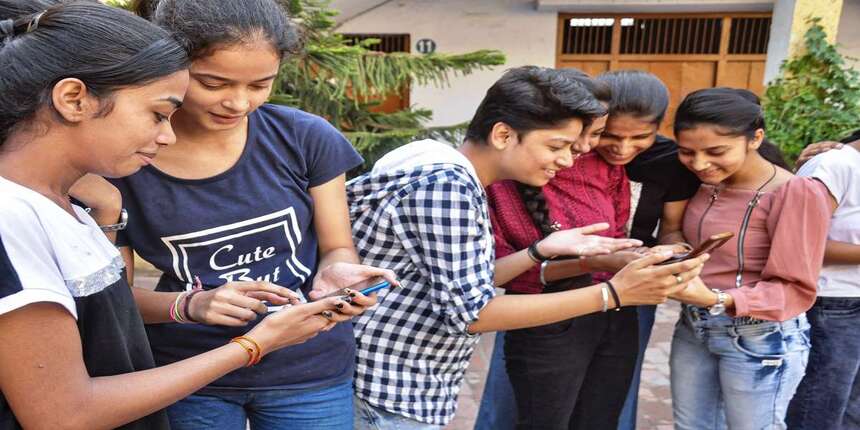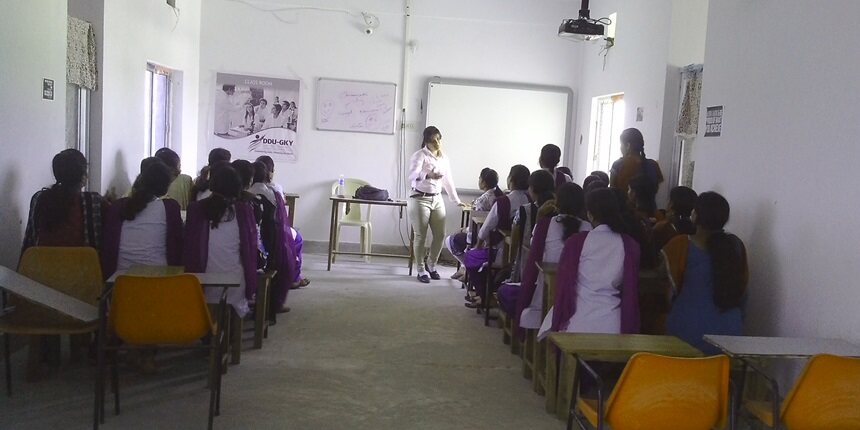Meet the Nil Ratan Sircar Medical College alumnus who saved the Jarawa tribe from extinction
A distinguished alumnus of Nil Ratan Sircar Medical College and Hospital (NRSMCH) Kolkata, Dr. Ratan Chandra Kar protected the Jarawas from measles.
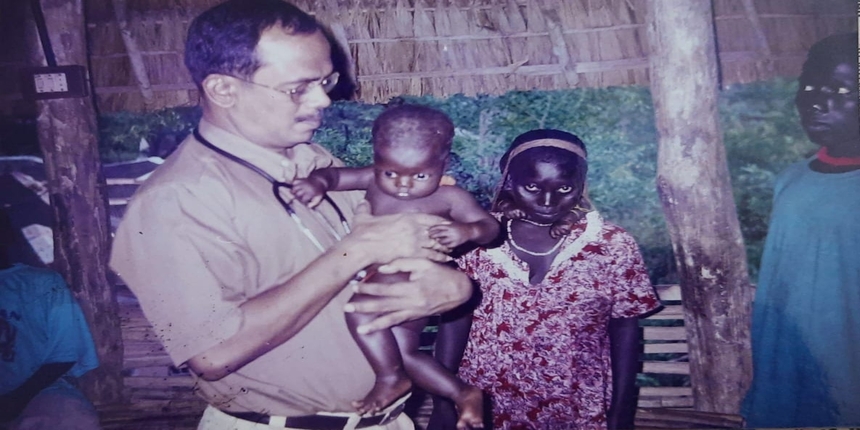 Dr Ratan Chandra Kar with a Jarawa child and mother (Image Courtesy : Dr Ratan Chandra Kar)
Dr Ratan Chandra Kar with a Jarawa child and mother (Image Courtesy : Dr Ratan Chandra Kar)Pritha Roy Choudhury | July 10, 2023 | 02:26 PM IST
NEW DELHI: The Jarawas, an indigenous tribe of the Andaman and Nicobar Islands have been inhabiting the islands for over 2,000 years. Contact with the outside world had put them at risk of deadly diseases including measles. For 15 years from the late 90’s, Dr Ratan Chandra Kar, alumnus of Nil Ratan Sircar Medical College in Kolkata, treated and protected the Jarawas, preventing their extinction. He was awarded the Padma Shri in 2023 and recognised by NRS Medical College. He spoke to Careers360 about his experience and why young doctors must serve in remote areas.
Q. The Jarawas refrained from interacting with outsiders. When did that change?
A. The Jarawa was a threatened tribe till now. They were, and still many continue to be, traditional hunters. They were warriors and did not compromise on defending their territory and population. The Jarawas are one of four tribal groups in the Andaman and Nicobar Islands. The others are the Sentinelese, the Onge and the Great Andamanese. The Great Andamanese again consists of 10 sub-tribes.
The Jarawa tribe, from 1997 – 1998, decided to give up their habit of shooting strangers. A boy named Enmai went to the gardens of a neighbouring settlement at night, fell and fractured his leg. The people of the settlement took him to Port Blair Hospital where he was treated for two months. After he recovered, he was returned to the Jarawas. During the two months, his people thought Enmai had died. After he was sent home, he narrated to the Jarawas how he was taken care of. After hearing his story, the Jarawa decided to not use bow and arrow on strangers. The incident happened in April 1996. By the end of 1997 and the beginning of 1998, they started mingling with others.
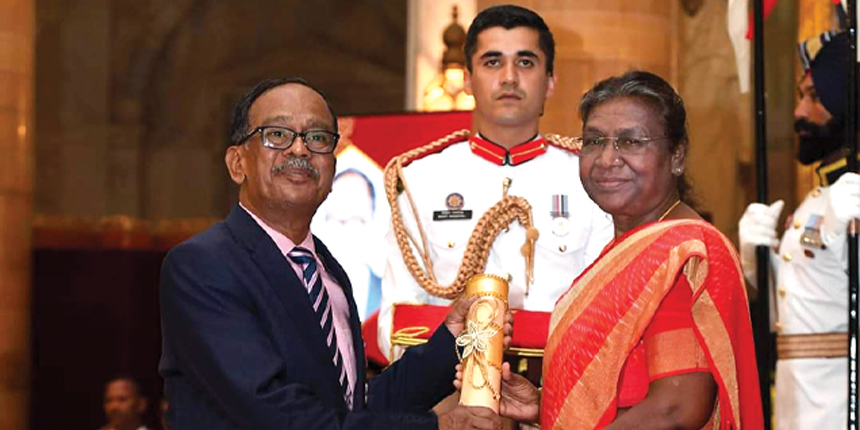 Dr Ratan Chandra Kar receiving Padma Shri award from President Droupadi Murmu
Dr Ratan Chandra Kar receiving Padma Shri award from President Droupadi Murmu
Q. How and from when did you get involved in their health and welfare?
A. After they started mingling with civilisation, they started contracting infectious diseases like measles. Many were dying. The welfare officers who were visiting the tribe requested the centre that a doctor should be posted among the tribe to save them from measles.
The central government came up with advertisements, and the response was very poor. But I had expressed my interest to work with the tribe since I had worked with the Konyak tribe in Nagaland, before joining the Andaman and Nicobar administration. The central government selected me to be posted at Kadamtala Hospital in central Andaman. I was already working in Andaman Nicobar since September 1988, and being a doctor of the Andaman Nicobar administration, I took this up as a challenge.
Q. It will be interesting to hear about your ‘first-day’ experience with the Jarawas.
A. The first day, when I went to the forest, I found many men armed with bows and arrows looking at me as if they were scared and doubted my intention. They were also confused look. But I had gone prepared. I have gifts of coconuts and bananas for the kids. After the kids got them, I could see a glow appear on the men’s faces. I was taken to a hut by one of them where some meat was being cooked. The hut was full of smoke. I quickly entered the hut holding my box in hand loaded with medicine and other medical equipment. Behind me, my most trusted police havildar, armed with his gun entered. This was a new chapter for me as a health professional and as a doctor. I was with them for 15 years; we became very good friends.
Also Read|Battling NEET coaching and boredom: Why AIIMS Delhi is changing the way it teaches
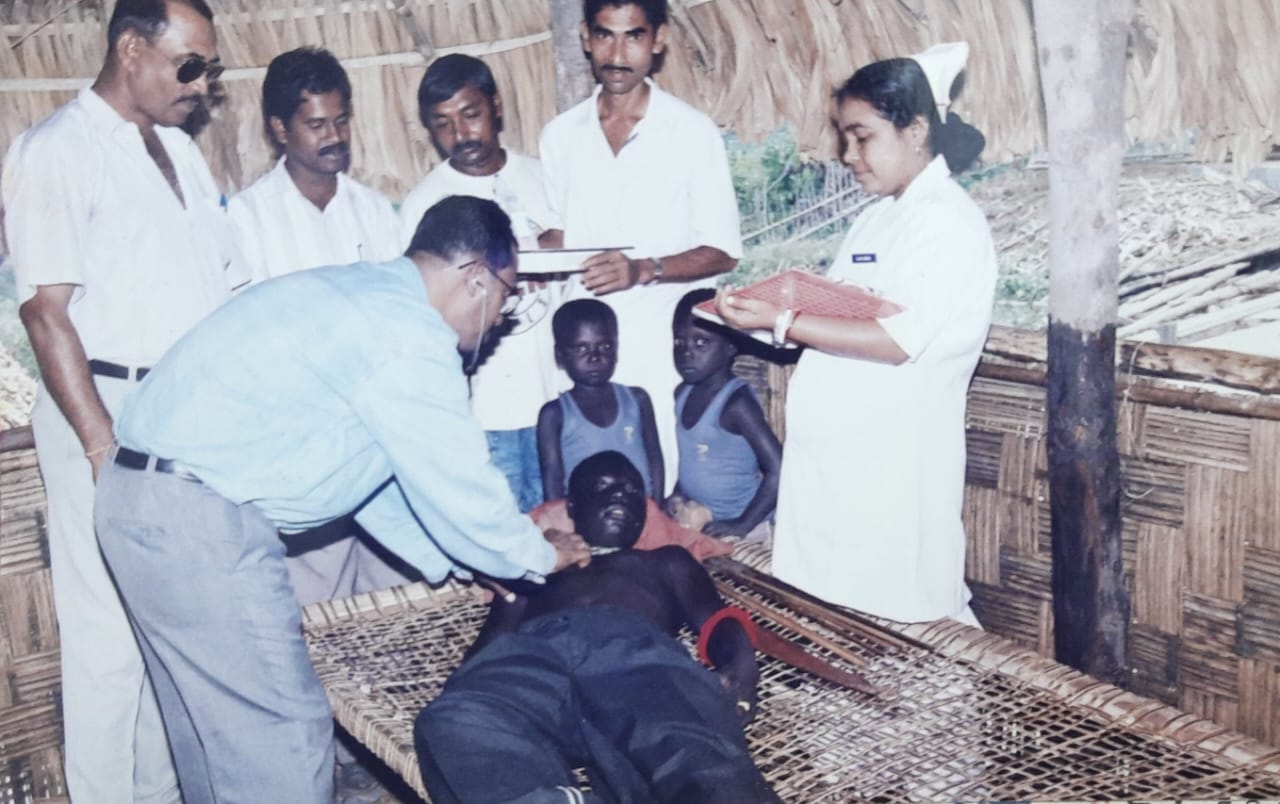 Dr Kar treating a Jarawa boy
Dr Kar treating a Jarawa boy
Q. How did you communicate with them?
A. This is the most important question. I visited their huts every day and learnt their language, way of life, and culture bit by bit. The Jarawa language doesn’t have a script but has grammar. When I fully learnt the language, I became one of them and very close to them. I also taught them Bangla.
The first time I saw them, the tribespeople were totally unclothed. The clothes I gifted them were flung into the sea. But with time, they started accepting these things. I gave pants to boys, and maxis (long gowns) to girls. I had to teach them to wash their clothes and wear fresh ones to prevent skin infections. They started doing what I said only after I learnt their language. It nearly took one-and-a-half years for me to convince them to wear clothes. The younger generation picked up fast; they wear clothes now.
When I started going to their place at the end of 1998 and the beginning of 1999, people were dying because of measles. I took up the challenge of eradicating measles; the government also promised all help because, across the globe, there was fear that the Jarawas would become extinct. During British rule, many of the great Andamanese tribes lost their lives. But we didn’t allow that to happen. We could save the Jarawas. Their population has increased from 255 -260 in 1998 to over 560 now.
Also Read| NExT Step 1, 2 twice a year; NMC shares pattern, schedule of medical exit exam
Q. What about their social life?
A. Theirs is considered a 'unique human heritage' (as per the Andaman and Nicobar Gazette December 21, 2004) to protect their cultural identity. They are aware of relations like husband and wife, mother, father, brother, sister and grandparents. They love their children, parents. They have marriage, last rites etc. I will say they are much, much more civilised than us. We do a lot of things which we should not. We resort to crime but they do not; there’s communal harmony. If they were hostile all these years, it is because of us.
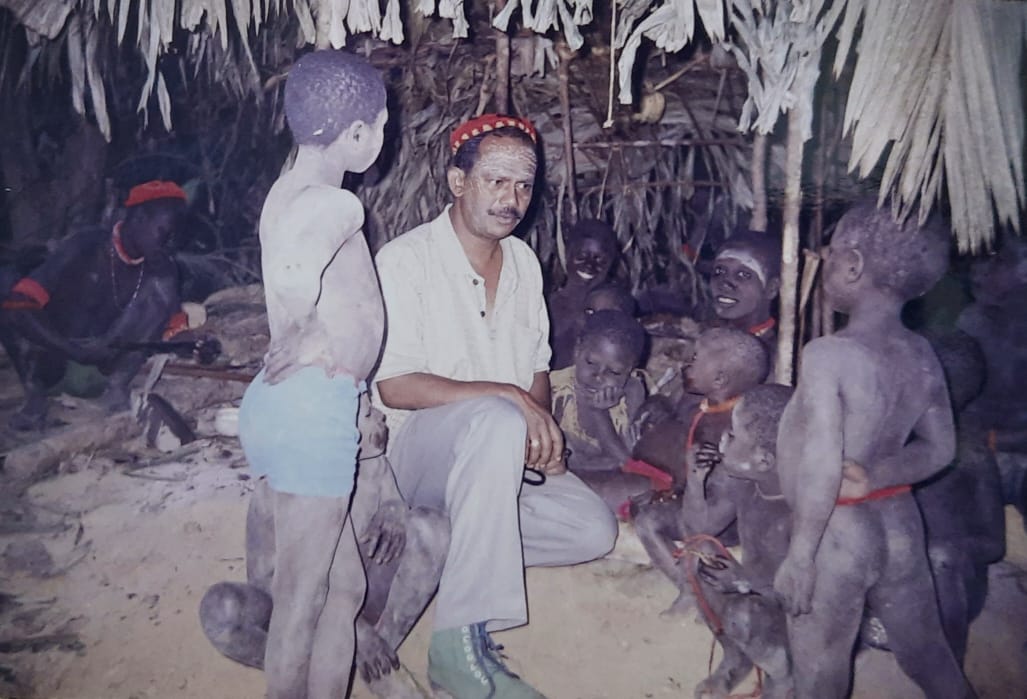 Dr Kar among Jarawa children
Dr Kar among Jarawa children
They make their house of wood and dry leaf in such a manner that water does not enter and is usually deep inside the forest where no one can see them. The houses are very strong and well-maintained. They are very good at making handicrafts. They eat seasonal fruits and vegetables which grow in the forest, fish, lizards and raw snails – the kids love that.
Q. Most doctors, even fresh graduates, are deeply reluctant to serve in remote areas.
A. When Nil Ratan Sircar Medical College celebrated 150 years of establishment, I was the guest of honour. In my speech, I asked the new generation, after completing MBBS, to serve in villages and remote areas for at least 10 years. I am not asking everyone to go to Jarawa-like areas but each and every student should serve in the rural areas. You not only work for them, but you also get a lot of respect. After staying for many years with the Jarawas, one day I asked a “mapo” – meaning “elder brother” – will you shoot me? He smiled and said, “No we will not shoot you, we love you!”
Follow us for the latest education news on colleges and universities, admission, courses, exams, research, education policies, study abroad and more..
To get in touch, write to us at news@careers360.com.
